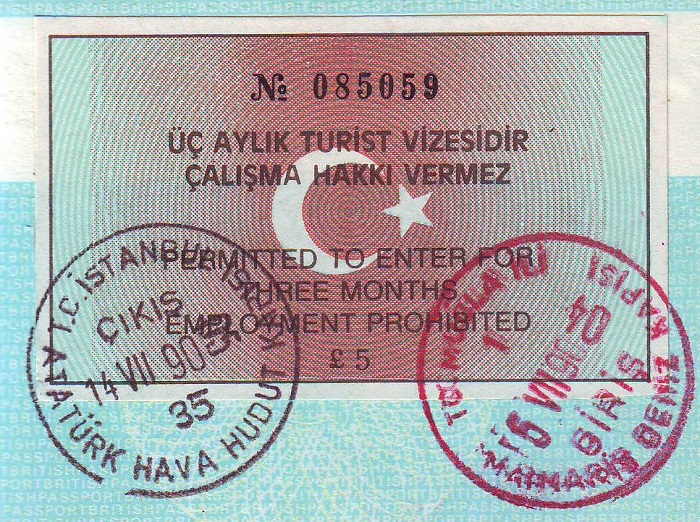Business
5 Things a Notary Can Do for You

According to the latest industry census, there are currently more than 4 million notaries officially commissioned throughout the United States.
While you might not think of this professional on a daily basis, you’ll be glad you know a notary public when you need one. From mortgage documents to adoption papers, these experts help authenticate a variety of documents.
Today, we’re sharing the full breadth of services that a notary can offer.
What Is a Notary?
A notary public is an appointed official who serves as an impartial witness for a variety of acts, especially those that require individuals to sign important documents. A notary performs certain steps to verify the identity of each signee and ensures the procedure is sound and secure.
Referred to as notarizations or notarial acts, these signature-based events are usually ones that could cause major devastation if any element of fraud is present. A notary helps to make sure that everyone is who they say they are, and that no deception takes place. The secretary of state for each state government typically appoints each notary.
Different Types of Notaries
There are two different types of notaries. These include:
- Common-law notaries
- Civil-law notaries
All notaries are authorized to perform identity verification services. However, only a civil-law notary can give actual legal advice. These special notaries are professional lawyers who have passed the Bar Exam in their state.
1. Perform a Jurat
A jurat occurs when an individual must verbally swear that the contents of a particular document are true and accurate. A notary must be present when a jurat occurs.
How does it work? In short, the notary will administer a quote, which the other party must restate and confirm. This quote will contain points that verify three main points:
- The person responding is the one who signed the document.
- The signer knows and understands the contents of the document.
- The signer swears that the document is true.
2. Oversee an Acknowledgment
An acknowledgment is an act in which an individual confirms their identity and verifies that they have voluntarily signed a given document. Usually, an acknowledgment is required for any type of document that outlines how valuable assets should be handled, such as:
- Mortgages
- Deeds
- Deeds of trust
The process is relatively straightforward, but it includes several important steps.
First, the signer must personally appear before the notary at the time of notarization. Then, they will positively state their identity. Finally, they will acknowledge and declare that their signature is the one on the document and that they signed it voluntarily.
While a mortgage loan may require the presence of a notary for identity verification purposes, this professional is not the same as a loan signing agent. You can find more information here on the distinction between those two roles.
3. Administer an Oath or Affirmation
While jurats and acknowledgments center on written documents, there may be other instances that simply require a verbal oath. In that case, a notary can still serve as a valuable resource.
As with the other cases, the overarching purpose of an oath or affirmation is to verify someone’s identity and truthfulness. When this type of declaration is required, then the signer has the choice of which type of verbal agreement to pursue.
With an oath, they are solemnly pledging to some sort of Supreme Being. With an affirmation, on the other hand, they’re solemnly pledging on their personal virtue and honor. If the signer isn’t particularly religious or does not want to pursue an oath, then an affirmation is equally binding and acceptable.
4. Confirm a Copy Certification
Over the course of your personal or professional life, you may be asked to make a copy of an official document. This might include your:
- Social Security card
- Driver’s license
- Medical records
- Bills of sale
- Diploma
- Car title
- Lease
To verify that a document copy is the same as the original, you can begin by bringing the original document to a notary public. In this case, the person requiring the copy is known as the “document custodian”.
Then, the notary will make a copy of the original document. Next, they’ll fill out a special certificate known as a Copy Certification. This certificate verifies that the information in the copied document matches that in the original.
One note: Though this is a common notarial act, not every state allows notaries to perform copy certifications. The American Society of Notaries has created an interactive map that makes it easy to research notary restrictions and permissions by state. Be sure to reference this map before performing any official act.
5. Witness a Signature
Some states allow notaries to witness or attest to an individual’s signature. This means that the notary will verify that the signature on a piece of paper belongs to the person in front of them, who is also named in the document. Usually, this will require that the notary be present at the time of the actual signing.
In this event, the notary is only verifying the authenticity of the signature. This event does not require the signer to acknowledge the execution of an instrument or the truthfulness of any statement.
Do You Need a Notary?
Over the years, you might find that you require the services of a notary for a variety of different reasons. In addition to searching online for “notary near me”, you can usually find these experts at banks, law offices, accounting firms, and libraries.
Once you find one that can provide the services you need, keep their contact information on file. You never know when you’ll sign a lease, buy a home, or need to verify any other type of important document.
In the meantime, we’re dedicated to being your go-to source for business and lifestyle news. Feel free to keep scrolling our blog for the informative guides you need!




![[pii_email_4c910535350b5a41ee81] Error Code Resolved](https://wigily.com/wp-content/uploads/2020/09/pii_email_4c910535350b5a41ee81-Error-Code-Resolved.jpg)
